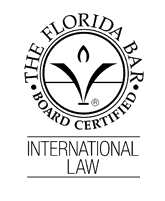During the annual Customs Symposium, which took place December 8-10, 2009, Richard DeNucci, the Director of Customs Office of Field Operations, Trade Initiatives, discussed how CBP will enforce
ISF(Importer Security Filing, aka 10+2) penalties, beginning January 26, 2010, and provided interesting statistics thus far. ISF will require both importers and carriers to submit additional information pertaining to cargo to CBP before the cargo is brought into the United States by vessel. FAQ’s on ISF filing may be found
here. Non compliant ISF filings can be costly, at $5,000 per violation.
Mr. DeNucci stated that Customs would be “reasonable and equitable” with ISF timeliness issues and will use the “least amount of force to ensure compliance.” When addressing DNL’s (do not loads), Mr. DeNucci stated this “is not something CBP will take lightly.” I personally am interested to see how this plays out, as CBP’s
mitigation guidelines are not that forgiving.
From January 26, 2009 to December 6, 2009, there were 3.65 million ISF filings, and 103,000 ISF filers. The most impressive part of this statistic is that 95% of these filers received an acceptance rate, meaning only 5% of the filers would have potentially faced ISF penalties for issues with filing. During this same time period, CBP reviewed more than 6,475 stow plans and 106 million container status messages. Interestingly, CBP noticed the highest volumes of filings on a Friday – apparently everyone is either a procrastinator or a go-getter, filing early.
Important notes regarding ISF:
- There will be report cards, they will address the volume, error message and timeliness (and will be available through the FOIA (Freedom of Information Act) process.
- CBP discussed a current bill in Congress which states ISF data will only be used for “security purposes” not for “trade compliance.”
- The main CBP contacts in Headquarters are: Richard DeNucci, John Jurgutis, and Stephen Silvestri.
- The main CBP contacts in the field are: Edward Moriarty and Joseph Martella .
- Unified filings (entry + 10+2) may lead to an earlier release.
- CBP recently updated the “Security Filing Transaction Sets” link which discusses applicable formats to send information to CBP.
With the January 26, 2010 enforcement date around the corner, it is time to make sure you have an ISF plan.


